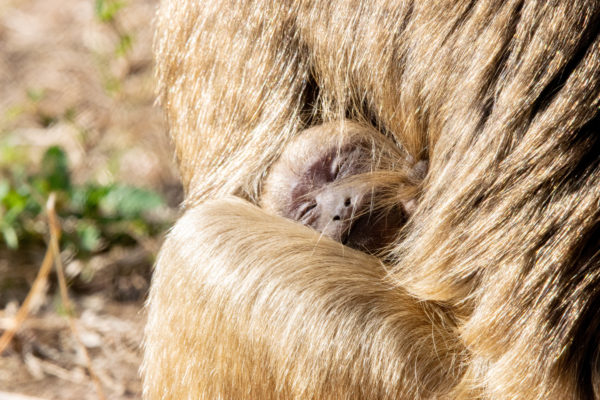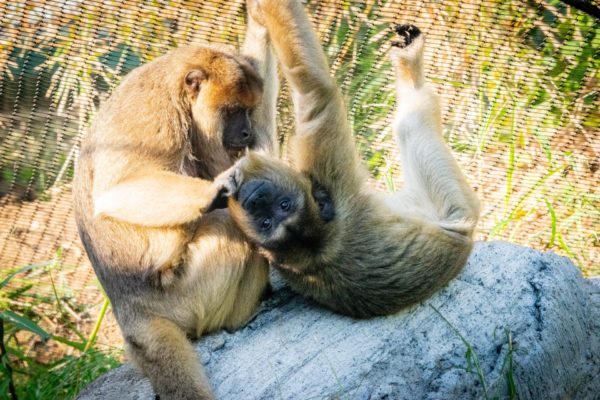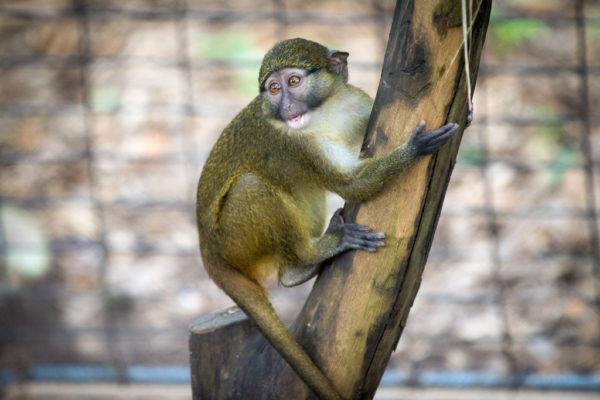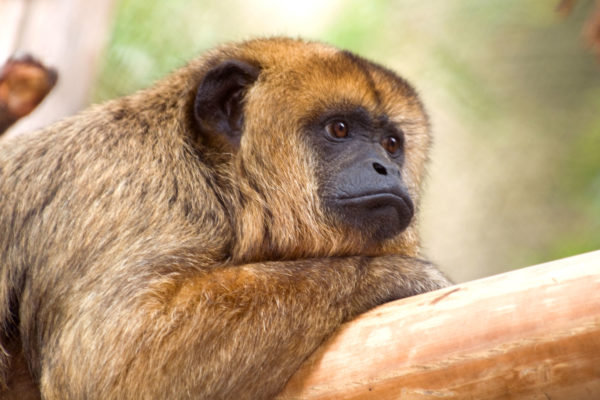Animal Facts
Scientific Name
Alouatta caraya
Range
Rainforests of South America, including eastern Bolivia, southern Brazil, Paraguay, and northern Argentina
Location in the Zoo
South America’s Pantanal
COOL ANIMAL FACT
Only the adult males of this species are black; the females range from golden brown to olive brown, and infants are born blonde!
How We Help Save Them
- We provide support and training for education campaigns that reduce hunting and trapping of wildlife like Howler monkeys in Colombia.
- We provide support for planting trees for wildlife like Howler monkeys in Colombia.
Where to See Them Inside the Zoo
Walking under the “lodge” deck in South America’s Pantanal, the first animals guests will encounter are a family of howler monkeys that occasionally burst into a cacophony of the loud vocalizations, which give them their distinctive name. The dimorphic monkeys – males are black, females are brown – rarely come down from the trees they live in and use their strong prehensile tail as a fifth limb, allowing them greater versatility when climbing.

Howler Monkey Family Grows by One

Happy Howlerween from our Howler Monkey Family


